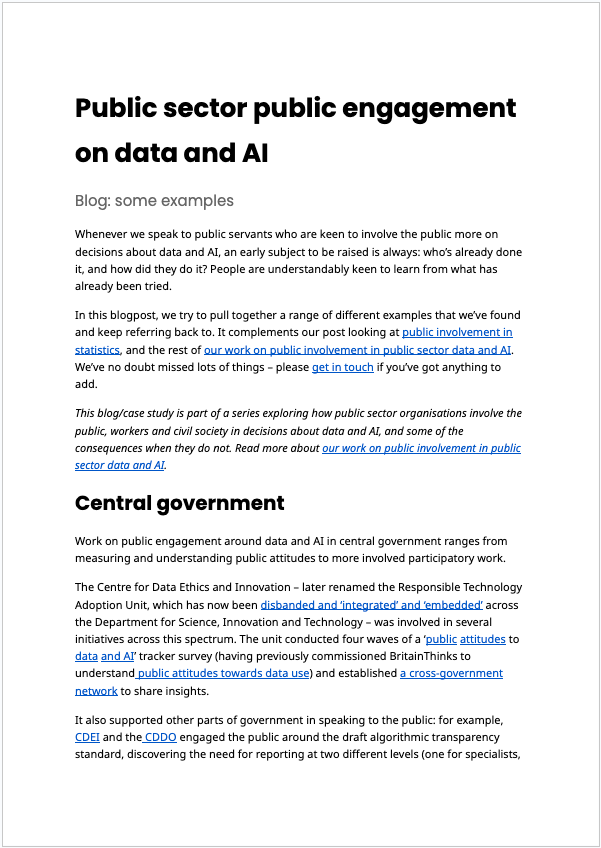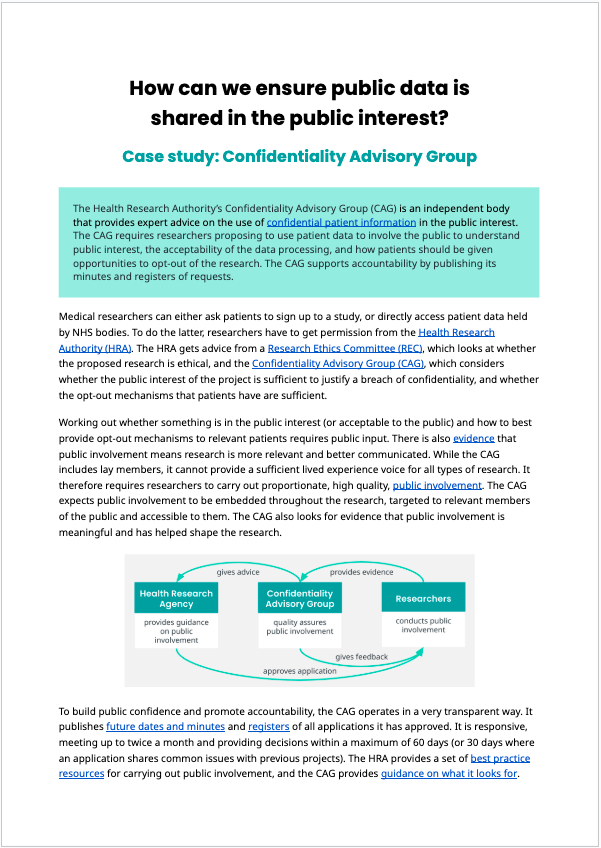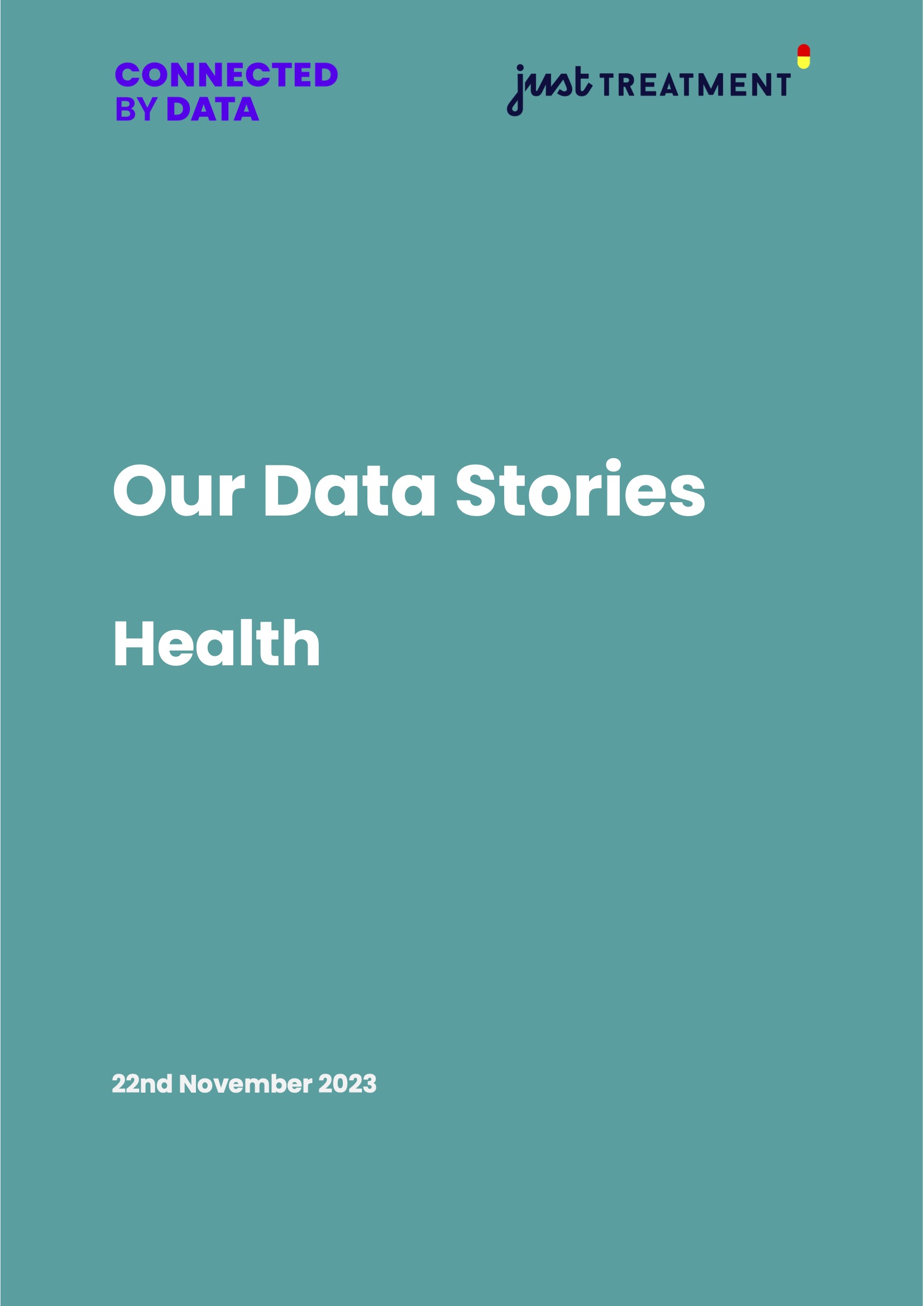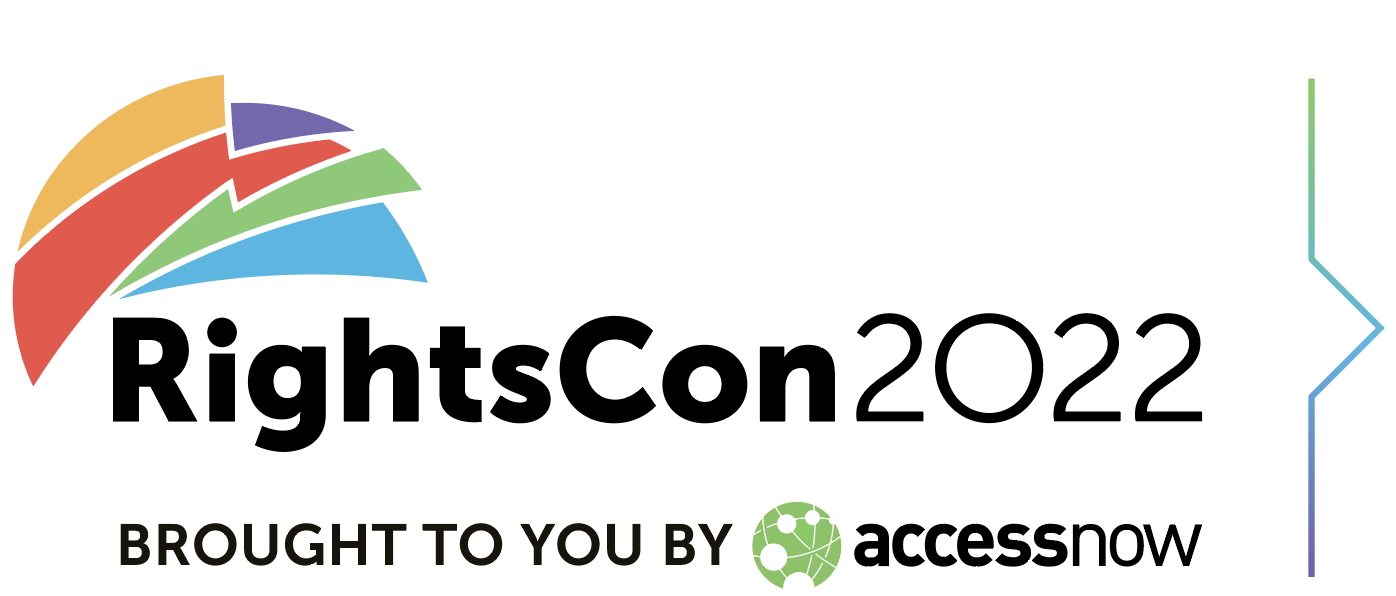Health
Giving patients, carers and health workers a powerful say


Health and healthcare is one of the most sensitive and personal issues for us all. With an estimated 600 million patient contacts in the NHS in 2023, the service is a vital part of our personal and community life. The NHS also holds one of the most valuable and sophisticated data sets in the world, rich with personal and population level information. Most people agree on the goal of utilising this data and introducing technology to improve healthcare, yet concerns abound abound how exactly to do that while preserving privacy, the public nature of the NHS and the human touch amid increasing automation.
We are working with patients, campaigners, workers and experts on how data and AI in healthcare uphold the value of the NHS.
Whenever we speak to public servants who are keen to involve the public more on decisions about data and AI, an early subject to be raised is always: who’s already done it, and how did they do it? People are understandably keen to learn from what has already been tried.
This blog/case study is part of a series exploring how public sector organisations involve the public, workers and civil society in decisions about data and AI, and some of the consequences when they do not. Read more about our work on public involvement in public sector data and AI.
The Health Research Authority’s Confidentiality Advisory Group (CAG) is an independent body that provides expert advice on the use of confidential patient information in the public interest. The CAG requires researchers proposing to use patient data to involve the public to understand public interest, the acceptability of the data processing, and how patients should be given opportunities to opt-out of the research. The CAG supports accountability by publishing its minutes and registers of requests.
This case study is part of a series exploring how public sector organisations involve the public, workers and civil society in decisions about data and AI, and some of the consequences when they do not. Read more about our work on public involvement in public sector data and AI.
Our lives have become digitised. Data about who we are, what we do and the environment we live and work in is collected about us constantly, whether we realise it or not. Whoever controls that data, be that big corporations or governments, has incredible power.
Yet, amid the hype and worry about the data-driven transformation of our world, there is often something conspicuously missing: personal stories. They ground our understanding that this change is not a remote future, but is a reality in progress that is affecting every relationship and interaction we have, as workers, family members, consumers and as citizens.
By hearing the voices of individuals we can better see the impacts of a datafied society. How we are affected is dependent on our individual circumstances, but the power of data is on a societal level. Whether at school, at work or in the justice system, there is a need to bring in this collective voice.
Through these stories, we aim to not only illustrate the reality of the impact of data on our lives, but to point the way towards a different approach, including:
- a focus on the wider impact of the collection and use of data
- rights for all those affected by data-driven decisions
- processes of participation for the public to help shape a datafied society
Our first data stories report focused on people at work. This report, written with Just Treatment, focuses on how people experience data when interacting with health services.
Nicola is the Head Data Operations at Our Future Health, a large health research programme based in the UK. The programme works by bringing together various datasets (questionnaires, clinical measurements, genetics, health records etc) relating to consenting volunteers to build a more comprehensive picture of health and wellbeing that could be relevant to understanding what changes people’s risk of disease.


On 30th January 2024 we hosted a conversation to share findings from, and have a wider discussion about, the implications of “Our Health Data Stories”; a report written by Just Treatment and Connected by Data. The report aims to bring out the personal stories of a range of patients as they encounter, think about, and respond to health data collection and use, to ground understanding and action in lived experience and help deliver person-centred care. It exposes how patients think about data on a day-to-day basis, and how this affects their approach to their health data and the way they use health services. And it recommends further work around data opt-outs, data service procurement, community engagement, and digital health apps. In our conversation we sought reactions to report, and also discussed action to be taken in response to the findings.
Jeni spoke on the RightsCon panel “Putting the ‘good’ in health data as a public good?”.
The COVID-19 pandemic accelerated the collection of health data – underscoring the importance of good governance to uphold the highest standards of data protection and respect human rights. In June 2021, the World Health Organization called for a new global consensus on “health data as a global public good,” with a focus on data sharing for improved health outcomes. But what does health data as a public good mean in real-world contexts?
Opinion
Over last three weeks at the end of July 2022 I was an observer of the NHS AI Lab Public Dialogue on data stewardship: a process involving around 50 members of the public meeting for 12 hours (across four sessions) to share their ‘thoughts, aspirations, hopes and concerns’ about how access to healthcare data for AI purposes should be managed. A report of the dialogue was published by the organisers (Open Data Institute, Imperial College Health Partners and Ipsos), and the NHS AI Lab (who co-funded the dialogue along with Sciencewise) intend to use the findings to inform the Terms of Reference for a research competition titled ‘Participatory Fund for Patient-Driven AI Ethics Research’.
This write-up contains my notes as an independent observer of the dialogue, and member of the project’s Stakeholder group.





